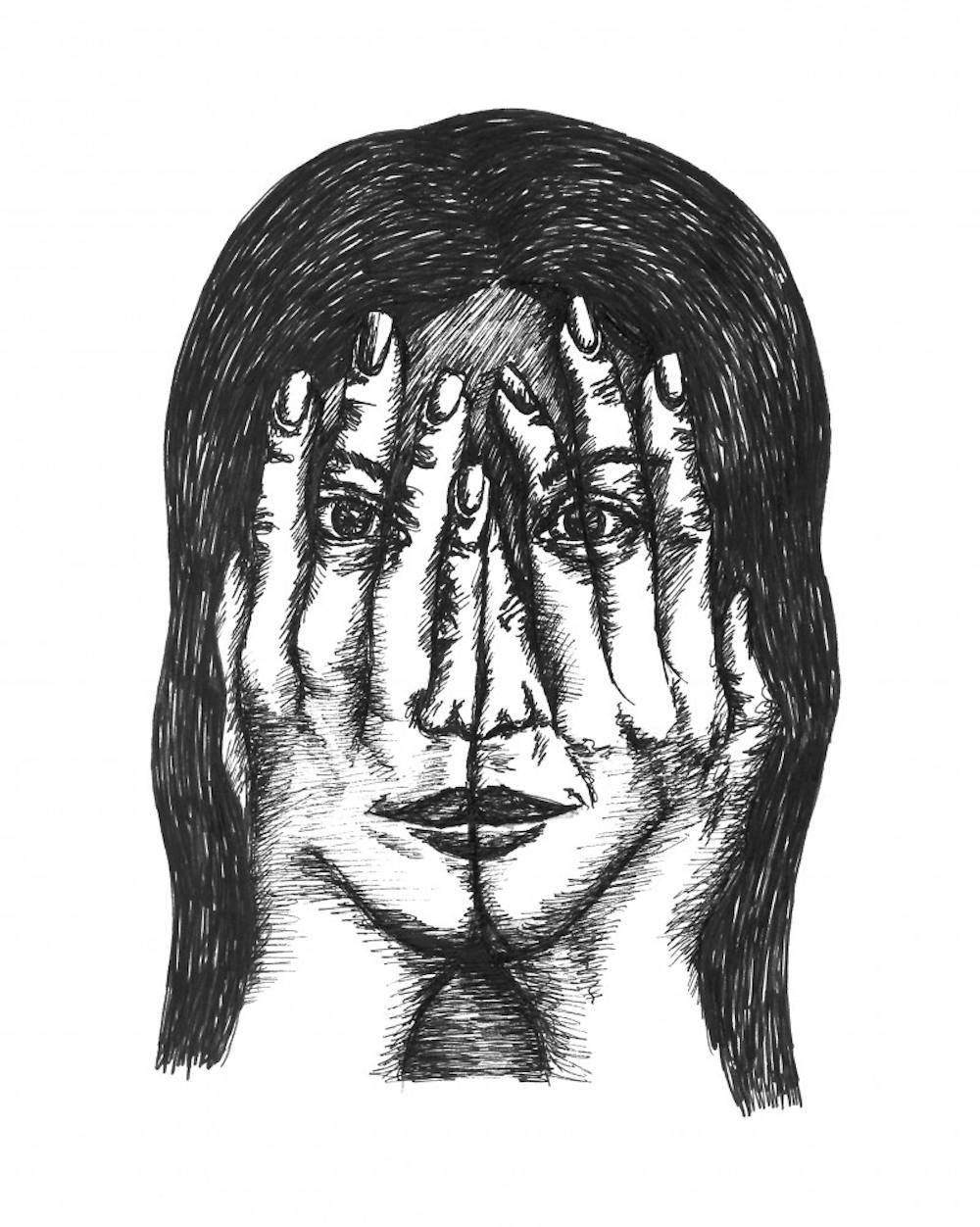We all remember the moment we got into Penn. "The Red and Blue" blared from our speakers, but was soon drowned out by screaming and even crying. Undoubtedly, in that moment, we all experienced one of the highest highs of our lives.
So why am I sitting here, over a year into college life, writing about the lowest low of my life? Why at Penn, do we hide the lows and pretend to be thriving? And why has Penn crushed all my hope that this attitude will ever be resolved?
Last semester, I was depressed. I had separation anxiety. I planned to take a leave of absence. Above all, I was convinced that I wasn’t strong enough to be at Penn. But sitting at Commons one lunch, I laughed along with friends even though I was too anxious to eat. I described how busy my classes were even though I couldn’t swallow my food.
When your mind tells you that you weren’t cut out for Penn, you desperately protect yourself from others finding out. The last thing you would do is reveal that you cannot handle this place and risk being seen as weak. The facade of being OK manifests as a shield for your reputation.
The embarrassment of being “weak” rolled into my recovery. Finally, revealing the story after its resolution, I felt the need to emphasize that “I’m really happy now, though,” to demonstrate some sort of strength. To show that I really was “thriving at Penn.”
My experience with Penn Face is far from unique.
But as I started talking about why this phenomenon exists, I started to realize that maybe it cannot be overcome. It’s intrinsic to life at a school like this. Penn Face is here to stay.
Columns about improving Counseling and Psychological Services have been written and shared aplenty. Instead, it’s crucial to know what causes Penn Face at its root. Are the forces simply too strong to be overcome?
Let’s look at our most obvious demographic. We are students of elite universities with single-digit acceptance rates. Arriving at an institution like Penn is often shocking. College senior Kathryn Dewitt summed it up best for The New York Times: “Everyone around me was so spectacular and so amazing.”
When so many students who are used to success are thrown into one arena, it becomes a breeding ground for competitiveness. And with competition comes the need to uphold reputation. Low acceptance rates come with very high stakes, and a slip of the mask of strength calls into question the legitimacy of your place at Penn. Weakness is not what the admissions committee saw in your application, and it definitely cannot be shown to anyone else.
Stanford University calls it the Duck Syndrome. Princeton University has a “Perspective Project” combatting it. However you frame it, it describes one phenomenon that is intrinsic to selective schools with competitive students. As inseparable as success and hard work, competition and reputation come as a package deal.

But is our talented, elite environment the only thing to blame, or is our secondary demographic — our generation — at play? Interestingly, Penn Face perfectly mirrors social media trends. We are the generation that is obsessed with image. From beautifying an Instagram account, to Snapchatting parties to demonstrate that you have friends, we love to present our highlight reels exclusively.
The generation that applied to Penn in 1980 was faced with an acceptance rate of over 40 percent. The acceptance rate for last year’s class, on the other hand, was only 9.4 percent. The competitiveness has essentially quadrupled.
Penn Face can also certainly be categorized within the larger worldwide stigma against mental health. But our time and place make it much stronger for us. Now, this attitude of hiding our anxiety and stress is so intense that merely dedicating resources to mental health support will not suffice. Penn Face is so deeply entrenched, we must ask: is there hope?
I want to think yes. But the solution would have to overcome something so intrinsic to competitive environments. It would have to change who we are as the student body. It would have to be stronger than our ambition, our intellect and our drive.
I wish I could make some vague yet impassioned call to action. But, one year at one of the most elitist institutions in the world has made me realize that there is so much to life here that rankings, prestige and glory hide. There is a large amount of fine print that comes with being an Ivy League student, a Snapchatter and a 21st century citizen. And we will all continue to agree to the terms and conditions and sign without reading them.
LUCY HU is a College sophomore from Auckland, New Zealand, studying political science. Her email address is lucyhu@sas.upenn.edu. “Fresh Take” usually appears every other Wednesday.
The Daily Pennsylvanian is an independent, student-run newspaper. Please consider making a donation to support the coverage that shapes the University. Your generosity ensures a future of strong journalism at Penn.
Donate





